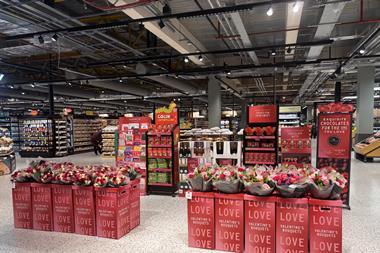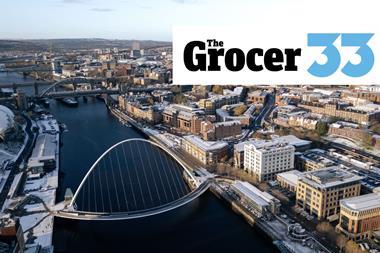M&S drives free-range
Marks and Spencer has introduced 700,000 laying hens this spring as part of its aim to be the first food retailer to completely remove battery eggs from its food range.
The drive will see hundreds of products right down to the glazing on sausage rolls being made using only free-range eggs.
The conversion will be complete by September.
Marks and Spencer has been steadily working in close partnership with its suppliers to remove the use of battery eggs in its food products since 1997. For every one egg it sells, M&S uses five eggs in its prepared foods.
Consumers have been influential in helping free range and barn egg production double from under a billion eggs in 1994 to over 2.1 billion in 2001, according to the RSPCA's Freedom Food scheme.
Free range and barn eggs now account for 28% of total production compared to just 15% in 1994, with battery egg production decreasing from 85.5% in 1994 to 72% in 2001 [DEFRA].
More than one billion eggs produced in 2001 carried the Freedom Food trademark, compared to just over one million in 1994.
Twenty five million laying hens were kept in battery cage systems in 2001, with under 10 million living in free-range or barn systems.
Meanwhile the NFU reports that free-range eggs are "tight at the moment, and a lot of packers are saying they wished they had them because the market is there".
Barn eggs seem to equating supply with demand, the union added.
{{CANNED GOODS }}
Close menu
- Home
- Retail & Wholesale
-
Products & Suppliers
- Back to parent navigation item
- Products & Suppliers
-
Product Categories:
- Back to parent navigation item
- Product Categories:
- Alcoholic drinks
- Bakery
- Cereals & breakfast
- Cheese
- Chicken & poultry
- Chocolate
- Confectionery
- Crisps, nuts & snacks
- Dairy
- Fish
- Fresh produce
- Frozen
- Household
- Meat
- Own Label
- Sauces & condiments
- Seasonal
- Soft drinks
- Vaping
- Vegan & plant-based
- World foods
- Suppliers
- People
- Reports & Data
-
Topics A-Z
- Back to parent navigation item
- Topics A-Z
-
Popular topics:
- Back to parent navigation item
- Popular topics:
- Cost of living crisis
- Crime
- Deposit Return Schemes
- Finance
- Government & Regulation
- Health
- Inflation
- Loyalty
- Marketing
- Mergers & Acquisitions
- New Product Development
- Sourcing
- Supply chain
- Sustainability & environment
- Technology
- Ultra Processed Foods
- Vaping
- A-Z all topics
- Content by type:
- Events
- Ask iA (beta)
- Subscribe now
Sign in to comment on this article
Not logged in before? Register for FREE guest access today.
You will be able to:
- Read more stories
- Receive daily newsletters
- Comment on stories
Advert



















No comments yet